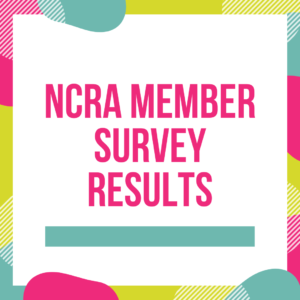By Megan Rogers
A buzzword that has been floating around recently is self-care, which comes down to meeting baseline needs. The recent American Copy Editors Society conference included a session on self-care for editors, and many of the points can apply to court reporters and captioners as well. These are all professions, after all, with people who spend lots of hours in a day sitting and focusing on a specific task.
Janet Gillett, PsyD, led the session. Gillett is a freelance editor with a background in psychology, and the session concentrated on finding a balance between the mind, body, and spirit. While each area has unique attributes, there is a lot of interplay between how they work together.
Mind
Like editing, court reporting and captioning can be cerebral activities, especially proofreading and scoping. These activities take a lot of focus, but spending too much time in mind mode can be problematic. There are a variety of clear warning signs that it’s time to focus on other areas:
- eyes start to burn
- being grumpy
- boredom
- headache
- feeling tired
- worrying
Gillett pointed out that the mind is good at talking itself out of something, like taking a break, but dedicating too much time to the mind can lead to a variety of results, which range from making people skills suffer to burnout. Gillett suggested taking some time to think about how you notice that you are in mind mode or have spent too much time in mind mode.
Body
The next area that Gillett focused on was the body, the physical entity that we inhabit. She pointed out that the body is often invisible until something goes wrong. It’s easy to ignore what the body needs in favor of something else — how often have you told yourself you’d go to the bathroom after proofing just a few more pages? There’s also a lot of misunderstanding about the body: While nutrition and exercise are important, they aren’t the only parts of the body that need attention. Areas of the body that need attention are:
- sleep: get enough to be rested the next day
- movement: sitting still for too long can be harmful
- posture: prevent unnecessary stress throughout the body
- food: fuel to keep the body working
To find balance with the body, it’s important to embrace the body. This comes down to first being aware of what the body needs, listening carefully enough to notice the moment the body needs something, and understanding why the body feels a certain way. With practice, all of these steps can begin to happen simultaneously to be truly grounded in the body. Gillett suggested thinking about ways that you can pay attention to the body. This can be as simple as taking the time to close your eyes, sit quietly for a few moments, and listen to the body. Consider whether anything hurts or aches, whether your stomach is growling, or if you have had enough water.
Spirit
Third, Gillett talked about finding balance in the spirit. Love, energy, inspiration, excitement, and passion are all linked to the spirit, as is feeling connected to something greater. There are several ways to access the spirit:
- play
- laughter and smiling
- meditation or prayer
- concentrated breathing
Gillett mentioned that the new trend of adult coloring books is an example of a good way to get in touch with the spirit; coloring a beautiful or meditative picture for a while can be calming and playful. Another way to connect with the spirit is to (re)awaken a new or existing passion, which could be related to an occupation (Gillett’s example for editors was a common passion for words and reading) or could be a hobby or other interest. Gillett suggested thinking of ways in which you can reconnect with your spirit.
Finding balance
These three areas — mind, body, and spirit — are all connected and overlap with each other. Gillett suggested thinking about how much time you spend in your mind, body, and spirit, perhaps creating a pie chart. Ideally, all three should be more or less in balance. I found, however, that I tend to spend the most time in my mind (I approximated about half), another third or so tending to my spirit (through hobbies or taking the time to recharge each day), and the rest of my time to my body (clearly not enough).
Some activities, however, can fulfill the needs of more than one area at a time. For example, going for a walk is good exercise for the body, but spending the time in nature is also good for the spirit. Spending too much time in the mind can negatively affect people skills, but playing a strategic game with someone else is a good way to feed both the mind and the spirit.
Finding balance can be challenging, but making sure the trio of mind, body, and spirit all are getting the attention they need is a good start.
Megan Rogers is NCRA’s Communications Assurance Specialist. She can be reached at mrogers@ncra.org.











